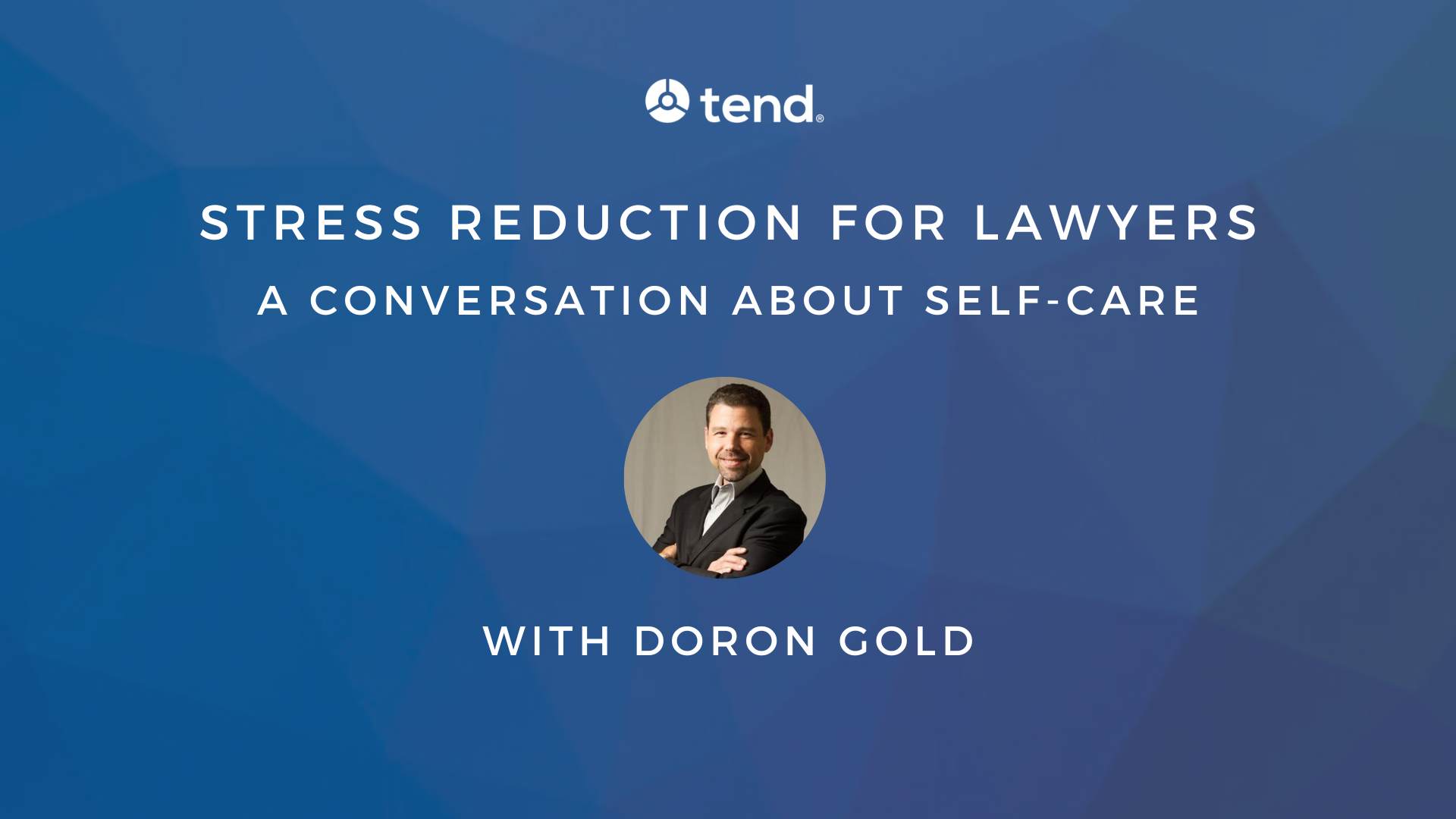Balancing Your Life
Balancing Your Life
“My research focuses on a central theme – understanding why lawyers and law students are not happy.”
Professor Lawrence S. Krieger co-directs the Externship Program and supervises criminal justice externships at the Florida State University College of Law in Tallahassee, Florida. His teaching focuses on litigation skills and the sources of lawyer professionalism.
Professor Krieger practiced criminal, civil, and administrative law for 11 years, serving most recently as chief trial counsel to the Florida Comptroller. Alongside his law career, he has also been a meditation teacher for 38 years.
In this interview, Professor Krieger shares some of his thoughts on success, well-being and happiness.
“The first paper I wrote was in 1998, and it was called “What we’re not telling law students – and lawyers – that they really need to know,” and it was published in the Journal of Law and Health. This was before I started focusing on research, however I had already done the practical research by practicing law for 11 years.
My research focuses on a central theme – understanding why lawyers and law students are not happy. Although I work in the legal profession, the results of this research apply to any high stress profession in which one would reasonably assume the person to be doing well.
These are the jobs that people should be happy in – they are intelligent people working in meaningful jobs – but for some reason there is a lot of stress and a lot of unhappiness.
In my two roles of doing research and teaching law students, one of my goals is to bridge the gaps in knowledge. On the research side, we know what makes for a healthy and happy person. On the teaching side, my aim is to translate that information into something meaningful that my students can use to build a satisfying life and career.
There are three key concepts that I teach my students:
Be Firmly in Touch with Reality
Here are a few questions to consider:
- What are your attitudes and relationship to the world? Are they realistic?
- Who do you think you are and who do you think you SHOULD be?
- What are your boundaries and limits?
If your goal in life is to solve child trafficking and you will only feel good once you’ve achieved that goal, you’re going to be deeply unhappy.
We need to be realistic about what we can actually accomplish as flawed, complex human beings.
Appreciate Your Good Motives
In many high-stress jobs, I believe that a lot of that stress comes from having a sort of “god complex.” I don’t mean this in a derogatory way. What I mean is that the people who work in these intense jobs often have a need to fix and to save people.
This need to fix and save is also the same need that inspires people to go into nursing, medical school, and law school in the first place. It’s important to appreciate that your motive is good.
However, you can’t save people. Nobody has done it yet. And sometimes you can’t even help people – at least, not in the ways you wanted to.
But, you can always try to help people. And it’s the trying that you should focus on in your work. That’s a good, realistic motive with healthy boundaries of which you can be proud.
Redefine Success
If you define success in such a way that requires certain things to happen that are beyond your control, you will always fail.
One of the critical pieces of learning to change your definition of success is to closely examine a stressful situation. Here’s an exercise that I often use with my students:
Look at any stressful situation that you’re in and make a chart with three columns.
In the first column, write down all of the important things that are contributing to or relate to this situation.
In the second column, list all of the things from the first column that you have control over.
In the third column, list all of the things that you have no control over whatsoever.
The second column will always be the same short list. It might include things like:
- Did I approach the situation with honorable motives, intentions and values?
- Did I make a reasonable and consistent effort toward my goal?
- Was I respectful including dressing appropriately, being on time, etc.?
Everything else will go in the third column including:
- The attitudes and beliefs of other people involved
- The choices that other people make
- Any outcomes
An important element of this exercise is to notice that the outcome of any situation will always be in the last column. The outcome might be the judge’s decision, whether or not your client likes you, whether your patient lives or dies, etc. The things that you do in the second column can influence the things in the third column, but everything in the last column is outside of your control.
Now, the simple (but not so easy) prescription for happiness is to only stress about the things that you can control.
So, let’s say you’re in an absolutely awful situation as a lawyer. Your client hates you, you’re about to lose your case, and your boss is a control freak and a rageaholic. Everything is going to hell in a handbasket.
However, once you closely examine the situation, you’ll realize that you have no control over your client’s feelings, the situation they are in, or your boss’s behaviour. Your success will only be defined by whether you did the best you realistically could with honourable intentions.
Even though the situation is terrible, you can still give yourself an A+ as a human being.
Learn to Look Inward
In 2015, Dr. Ken Sheldon and I published a paper in The George Washington Law Review entitled “What Makes Lawyers Happy?: A Data Driven Prescription to Redefine Professional Success.” We studied 6200 practicing lawyers and judges and did a factor analysis of several well-being factors.
The four strongest indicators of attorney well-being were: authenticity, relatedness, competence and internal motivation for your work – that you enjoy it and it fits your values.
The results of the study showed that as the human factor increased, so too did overall happiness. Happiness is a result of balancing our outward, external values with our inward, internal values.
The things that you can put on your résumé – the money, the accolades, making partner – research has shown over and over again that these things aren’t going to make you happy. And if you examine the situation using the exercise mentioned above, you’ll also notice that they are things that you have no control over. If you are too outward focused, your life will be a constant stress challenge.
However, when we consider the strongest indicators of well-being from the study, there is one underlying factor to them all: connectedness.
To be connected means that we are focusing inward – we are in touch with our own values, our work has meaning, we have a good relationship with our boss, and belong to a community.
Well-being and happiness are feelings – and feelings aren’t “out there.” What is out there is a place to express and extend what is inside.
But life, energy, joy, love, inspiration are all inside. That’s where your life is – and I encourage you to begin looking inward to find these things.”
Additional Resources
Professor Krieger and his wife Rev. Theresa Krieger have a self-published book called Create Success Without Stress: New Science for Happiness, Health, and Positive Professional Identity. The book shows law students and lawyers how to fully enjoy work and personal life, remain (or become) healthy and happy, and expand their professional achievements and success. Readers learn exactly why lawyers and students often experience distress, anxiety, or depression, and exactly what to do to prevent or mitigate those negative experiences.



